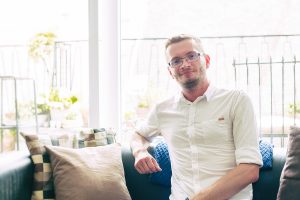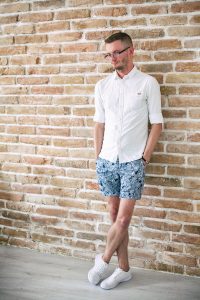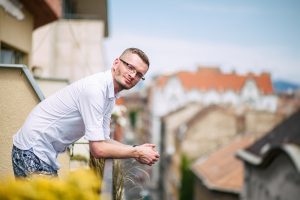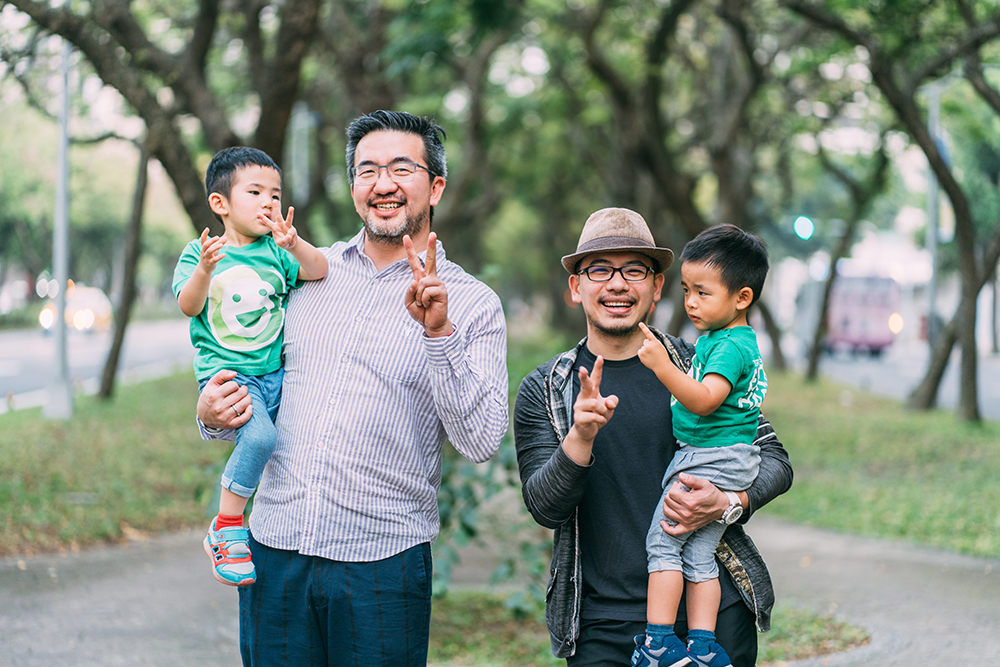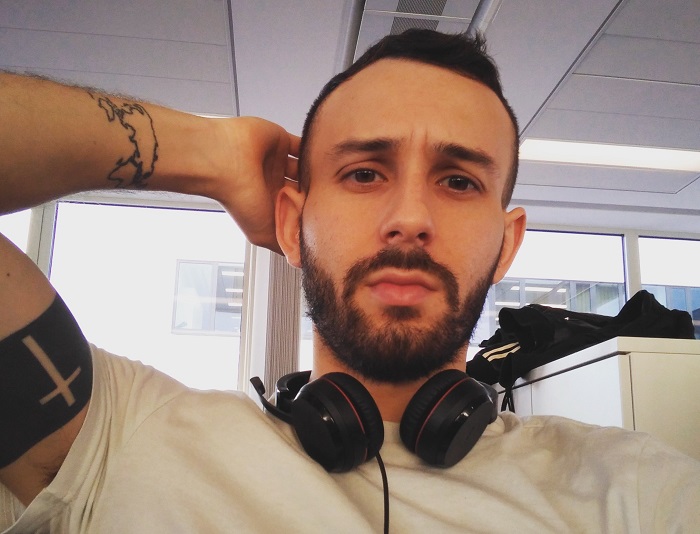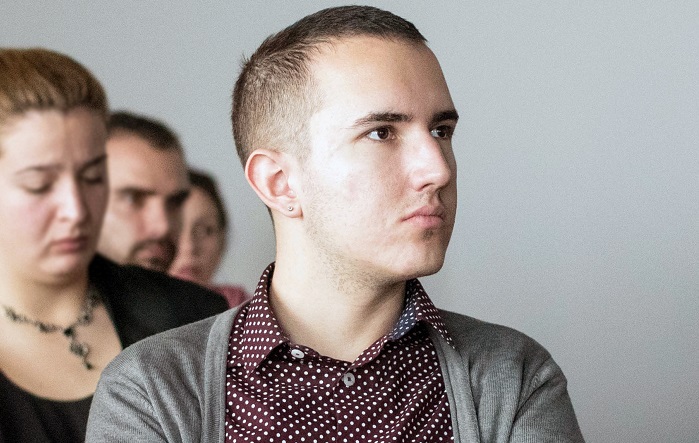Now is not the time to be afraid
Originally from Slovakia, not far from Hungary, Ondrej Mezővári has an interesting expat story with the deep knowledge on Hungarian culture and at the same time, living his life in Budapest with the eyes of a foreigner.
What has your connection been like to Hungary when you were a child?
I grew up in a very similar mentality to the Hungarian one; I lived in Slovakia for 18 years in a small village close to the border called Otrocok, which has around 275 habitants. I started my Hungarian formation very early as I studied in a Hungarian school, but at some point I shifted my focus to bigger cities and decided to move to Budapest. Now I have been living in Hungary for more than 10 years. I moved here when I was around 18.
Did you grow up with Hungarian traditions considering them your own?
Your mother tongue is the main thing that defines identity and cultural influence. We don’t have the same traditions as in Hungary and we have our own, even if they are very similar; but at the same time we share a history so it was not such a big cultural shock when I moved here.
What brought you to Budapest?
Studying my whole life in Hungarian schools and being open to different cultures in general made me want to move to bigger cities because they mean greater possibilities. But a big motivation was to have a better life as a gay man than in a village with 275 inhabitants. The language and the culture were not the key point when I decided to move here, even if for obvious reasons it was bound to happen, but my first choices were Vienna or Prague. I ended up choosing Budapest because it was closer to home and because of referrals from a friend of mine who had been living here back then.
Moving here was unexpected – what do you think 10 years later?
I am very happy I made that decision, I never regretted it and I am very confident that coming here was the best option for me. I am very satisfied with life in Budapest. I am still as in love with the city as I was on my first day and during those 10 years I was able to meet great people and connect with individuals that have become very important parts of my life with deep friendships.
What do you do In Budapest now?
I work for a big telecommunications company’s SSC (Shared Service Center). Hungary gave me my first professional experience, starting with some temporary jobs like being a sales person in a shop at the mall or working for a bank for like 6 years. Then I found my current workplace where I have been working for almost 3 years now. I am responsible for the support team handling larger international corporations and giving them advice about the company’s products and services in different languages.
What about your hobbies? What do you do in your free time?
I am a very social person; I like to go out with my friends either to party or just to hang out. I also love to travel because it “recharges my batteries” and I try to be involved with the LGBT community as much as possible. I am a huge fan of Budapest so I like to discover the city, how it is changing and how it is developing with time and by the influence of worldwide trends.
How are you involved with the LGBT community?
I started simply by attending the Gay Prides. They were the first prides in my life and since then I support them with financial aid regularly. I still participate as much as possible in all their programs, like the film festivals which are always very well organized. I recently joined the LGBT group in my company which is quite new and there is a lot of work to do but I am glad to see the support around it and the fact that we’ve created it.
What do you think of the involvement of Hungarians with LGBT issues?
Straight people usually think that all gay-related topics are far from their own life so they don’t really participate or act about it as something that is part of their society. Somehow it is as if “gay life” is something that they only see on TV. The average Hungarian gays are usually afraid to come out and that is a big bottleneck in the way of engaging gay people into LGBT initiatives. When you haven’t come out as gay, it is difficult to participate in public activities since you are afraid of being seen at these events. It is a full circle; LGBT acceptance doesn’t grow because of the lack of representation and the lack of representation comes from the low acceptance. But we have to admit that the city has been rapidly improving in this matter so I am curious what the future will bring.
How do you think that the citizens’ participation in LGBT issues could improve?
The same way it has happened in major European cities: with time. Time will pass by and people will get used to LGBT presence, especially with certain patterns being currently noticeable in Budapest from an economical point of view, where a lot of straight people or venues are open to host gay events because of the financial benefit. The next step would be to push that boundary of plain financial interest and focus on the real social impact.
From the human perspective, as we grow here in Budapest we have easy access to cities that are much more open about gay issues, so it is easier for gay people to go and participate in the ones that are more settled instead of actively supporting the ones which still need a lot of development. Of course, not everything applies to everyone. I my opinion, local people should support local initiatives more.
How would you improve the gay life in Budapest?
For years I had the same need as most people about having more gay clubs in the city. More clubs would be able to satisfy the different needs of the community. But I would say that we are missing events that are connecting people (gay or straight) and generating discussions about social inclusion and how we can increase the acceptance of gay people in Hungary. I would like to see straight people challenging their mind about how to integrate gay life into the city. An issue does not exist until we actively acknowledge it, let it be gay adoption, marriage, etc. I will be a supporter of any event that triggers an ongoing and continuous conversation with a useful output put together from the people.
As a usual visitor of Budapest Pride, what would you say to those who are still not convinced if they should go to this year’s event?
I would first ask why they aren’t attending. If it is because they are afraid I would tell them I am afraid as well because it naturally causes conflict, but we need to realize that we are not the only ones afraid and we are not alone. Overcoming that feeling of being afraid gives you an amazing feeling of freedom, which I know from my own experience.
A few years ago the event was open for everyone and you were able to join or leave the pride at any point you wanted. Now it is much more protected with fences and everyone, even the organizers, limit the information about the Pride parade in order to protect the community and I think it is a normal behavior after some political problems and the homophobic attacks. But this just means that Budapest Pride is a very important example of why Hungarian society needs to fight for gay acceptance and inclusion.
My message is to never be afraid to challenge yourself and your environment. Without pain there is no gain.
Germán Henao
Fotó: 1foto.hu


